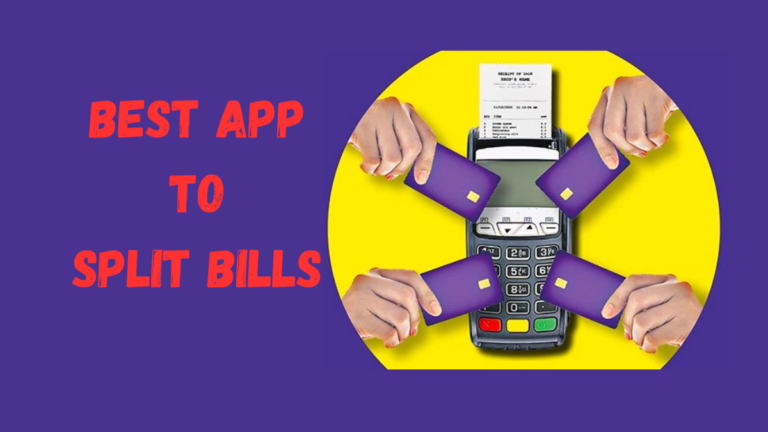Clever Ways To Save Money
Are you tired of watching your hard-earned cash disappear before your eyes? It’s time to take control of your finances and discover some clever ways to save money! Whether you’re saving up for a dream vacation, hoping to build an emergency fund, or simply looking for more financial freedom, this blog post is here to help.
From unexpected everyday hacks to creative long-term strategies, we’ve got the inside scoop on how you can pad your wallet without sacrificing the things you love. Prepare yourself for a world of smart savings tips that will leave you feeling empowered and inspired. Get ready to say goodbye to financial stress and hello to a brighter future filled with extra funds in your pocket – let’s dive right in.
Table of Contents
What is Saving Money?
Saving money is key to financial success. It allows you to build up your emergency fund, save for retirement, and reach other financial goals.
There are many ways to save money, but it can be difficult to know where to start. This introduction will give you some basic tips on how to save money.
First, you need to make a budget. Track your income and expenses so you know where your money is going. Then, look for ways to reduce your spending and increase your savings.
One simple way to save money is to set aside a fixed amount each month into a savings account. You can also take advantage of special offers and discounts, such as cashback rewards programs.
Another great way to save money is to invest in yourself. Take the time to learn about personal finance and investing. This will help you make better decisions with your money and reach your financial goals faster.

Tips and Strategies for Saving Money
Saving money doesn’t have to be difficult – there are a number of simple things you can do to cut down on your spending and put more money into savings. Here are a few tips and strategies to help you get started:
- Make a budget and stick to it: This is one of the most important things you can do when it comes to saving money. Figure out how much you need to spend each month on essentials like housing, food, transportation, and healthcare, and then make sure you don’t exceed that amount.
- Track your spending: It’s also helpful to keep track of your spending so you can see where your money is going each month. This can help you identify areas where you may be able to cut back.
- Cut back on unnecessary expenses: Take a close look at your spending habits and see if there are any areas where you can cut back, such as eating out, buying coffee every day, or shopping for new clothes unnecessarily.
- Save automatically: One of the best ways to make sure you’re saving money is to set up automatic transfers from your checking account into your savings account each month. This way, you’ll never even see the money and it will start to add up over time.
- Invest in yourself: Another great way to save money is to invest in yourself – whether that means taking courses or learning new skills that can help you earn more money or simply reading books that can help you develop those skills.
- Cut down on entertainment costs: Try to find low-cost or free ways to have fun, such as taking hikes, visiting museums, or having friends over for game nights instead of going out.
- Make the most of coupons and sales: Look out for sales, coupons, and other deals so you can save money when shopping.
- Shop around for better prices: Don’t just settle for the first price you see – do some research and make sure you’re getting the best deal possible on any purchase you make.
Paying Down Debts and Credit Card Balances
Assuming you have debt and credit card balances that you would like to pay down, there are a few things you can do to make the process easier and faster:
- First, take a look at your budget and see where you can cut back on spending. This extra money can be put towards your debts. If you can find ways to bring in more income, this will also help speed up the process of paying off your debts.
- Next, focus on paying off the debts with the highest interest rates first. This will save you money in the long run as you will be paying less in interest. You may also want to consider consolidating your debts into one loan with a lower interest rate.
Make sure you are making all of your payments on time. This will help improve your credit score and may even give you a lower interest rate on future loans.
Setting Up a Budget and Tracking Expenses
Assuming you don’t have a budget already in place, setting one up is crucial to saving money. You can’t save money effectively if you don’t know where your money is going. There are a number of ways to set up a budget, but one of the simplest is to track your expenses for a month and then categorize them. This will give you a good idea of where your money goes and where you can cut back.
Once you have your categories, set up a budget for each category. Make sure to include some wiggle room in your budget so that you don’t feel like you’re depriving yourself. If you stick to your budget for several months and find that you’re not overspending, you can adjust it accordingly.
Tracking your expenses can be done in a number of ways, but one of the easiest is to use a spreadsheet or budgeting software. This way, you can easily see where your money is going and make changes as necessary.
Avoiding Impulse Spending
When it comes to spending money, we can all be guilty of making impulse purchases from time to time. Whether it’s a new piece of clothing that catches our eye in the shops, or treating ourselves to a takeaway when we’re feeling tired after a long day at work, it can be all too easy to let our spending get out of control.
If you’re looking to save money, then it’s important to be aware of your spending habits and try to avoid making impulse purchases. Here are some clever ways to help you do just that:
- Make a list before you go shopping: Whether you’re doing the weekly food shop or heading out to buy a new outfit for a special occasion, it can be helpful to make a list of what you need before you leave the house. This will help you stay focused on your purchase and prevent you from picking up any unnecessary items.
- Give yourself time to think: If you see something that you really want but you’re not sure if you need it, then give yourself some time to think about it before buying. If after 24 hours you still haven’t been able to get the item out of your head, then it may be worth purchasing. However, if you find that your interest has faded after a short while, then it was probably just an impulse buy and not worth your money.
- Stick to cash: Using a debit or credit card can make it easier to part with your money, so if you’re trying to avoid impulse buying then it’s best to stick to cash payments. This way, you’ll be able to physically feel the amount of money leaving your wallet and hopefully keep yourself from spending too much.
- Set a budget: If you know that you have a tendency to overspend, then it can be helpful to set a budget and stick to it. You could even keep track of your spending by setting up an Excel spreadsheet each month so that you can see exactly how much money is coming in and out of your account. Doing this will help ensure that you stay within your means and don’t end up blowing all of your hard-earned cash on unnecessary items.
- Reward yourself in other ways: Sometimes we treat ourselves with material things when we should be rewarding ourselves with experiences instead. Instead of going shopping for the latest gadget or outfit, why not treat yourself to a day out at the spa or a weekend away somewhere new? These types of experiences will last much longer than any item could ever do and will likely leave you feeling far more fulfilled.
Automating Your Savings
Saving money can be a challenge, but there are some clever ways to automate your savings so that you can put your money away without even thinking about it.
One way to do this is to set up a direct deposit from your paycheck into a savings account. This way, you won’t even see the money and you’ll be less likely to spend it. Another option is to use a service like Digit, which connects to your checking account and automatically saves small amounts of money each day based on your spending habits.
If you’re really serious about saving, you can set up automatic transfers into different types of accounts, such as a high-yield savings account or an investment account. This way, you’ll be earning interest on your savings and growing your money over time.
Whatever method you choose, automating your savings is a great way to make sure that you’re putting away money each month without having to think about it.
Investing Wisely
There are a lot of things that you can do in order to save money, but investing wisely is one of the smartest and most effective ways to do so. By investing your money in assets such as stocks, mutual funds, or real estate, you can grow your wealth over time and enjoy financial security in the future.
Of course, there are risks associated with any type of investment, but if you diversify your portfolio and invest in a mix of different assets, you can minimize your risk and maximize your chances for success.
If you’re not sure where to start, talk to a financial advisor or an investment professional to get started on the right track. With a little bit of planning and some smart investments, you can reach your financial goals and build a bright future for yourself.
Taking Advantage of Discounts and Coupons
Discounts and coupons are a great way to save money, but only if you know how to use them correctly. Here are some tips for taking advantage of discounts and coupons:
- Only buy what you need: Just because an item is on sale or you have a coupon for it doesn’t mean you need to buy it. Stick to your shopping list and only buy items that you were planning on purchasing anyway.
- Compare prices: Don’t assume that just because an item is on sale or you have a coupon it’s the best deal. Take the time to compare prices at different stores before making a purchase.
- Use online resources: There are many websites and apps that can help you find discounts and coupons for the items you want to buy. Spend some time browsing these resources before heading to the store so you can take advantage of the best deals.
- Know when to use your discount or coupon: Some discounts and coupons can only be used on certain days or times, so be sure to read the fine print before using them. Also, be aware of expiration dates so you don’t miss out on savings.
- Ask about discounts and coupons: Don’t be afraid to ask store employees about any discounts or coupons that may be available. You may be surprised at how much money you can save just by asking.
Making Your Own Products or Services
Making your own products or services is a great way to save money. By doing things yourself, you can avoid paying for expensive materials or services. You can also get a better understanding of how things work, which can help you save money in the future.
There are a few things to keep in mind when making your own products or services. First, make sure you have the skills and knowledge necessary to do the job right. Second, take your time to do it right the first time; rushing can lead to mistakes that will end up costing you more money in the long run.
Be prepared for any unexpected costs that may come up along the way. By being mindful of these things, you can make sure that making your own products or services is a cost-effective way to save money.
Conclusion
There are countless ways to save money and be more mindful of your spending. By following the clever tips mentioned here, you can start saving money today! From budgeting your expenses and setting a savings goal to using coupons and cutting down on impulse purchases, there are many small steps that can help you reach your financial goals.
Saving doesn’t have to be stressful or difficult; with some planning and smart decisions, anyone can put away extra funds for their future needs.






